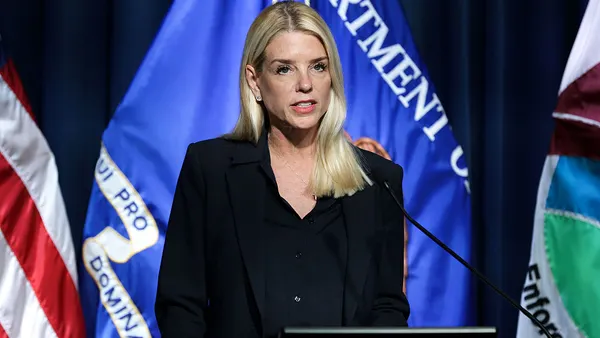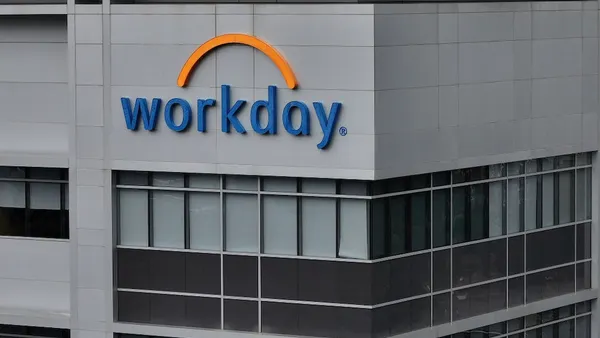Dive Brief:
- Most executives recognize the importance of corporate purpose in addressing societal issues, but comparatively few say their organizations have implemented accountability measures to ensure they follow through on that purpose, according to a recent Deloitte report.
- The firm's survey of more than 200 C-suite executives found that while 70% said their roles were impacted by their respective companies' purpose, only one-third said their compensation was tied to performance against purpose-related priorities. Additionally, of the 79% of respondents who said their companies had a clear, defined purpose strategy, 22% said their companies did not prioritize collecting purpose-related data.
- Still, 79% of respondents said that purpose-related activities would deliver value to their organizations' recruitment, engagement and retention efforts, Deloitte said. In its research the firm gathered responses from executives indicating that employees wanted to be involved in activities related to purpose.
Dive Insight:
The corporate world's attention has turned increasingly toward environmental, social and governance factors — often referred to by the shorthand ESG — in recent years. A 2020 Willis Towers Watson survey found 78% of employer respondents planned to change their executive incentive plans to align them with ESG goals, including target setting and performance measures.
That trend also has extended to investors, as indicated by the federal government's recent efforts to, for instance, allow employee benefit plan fiduciaries to take ESG factors into account in the course of choosing investments.
In their responses to Deloitte, a panel of executives pointed to a variety of accountability strategies their organizations implemented. At Johnson & Johnson, for example, the company's focus on meaningful health outcomes drives all decision-making, Chief Information Officer Jim Swanson said in the report.
Others pointed to the role of top executives. "You need a senior leader who has credibility to get the big rocks moved and say, 'We need to invest more in this space,'" said Brian Tippens, chief sustainability officer at Hewlett Packard Enterprise. "As you're trying to elevate purpose, find somebody with that breadth of experience and credibility inside the enterprise."
Though all C-suite members play a role in driving purpose, according to Deloitte, the firm also suggested that employers consider creating a separate role to provide ESG oversight, such as chief purpose officer or chief sustainability officer.













